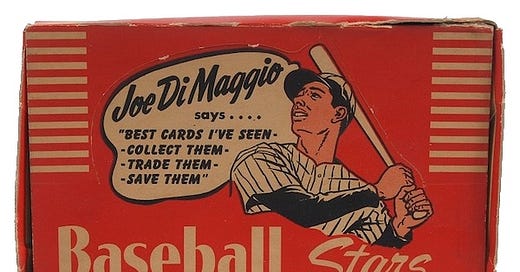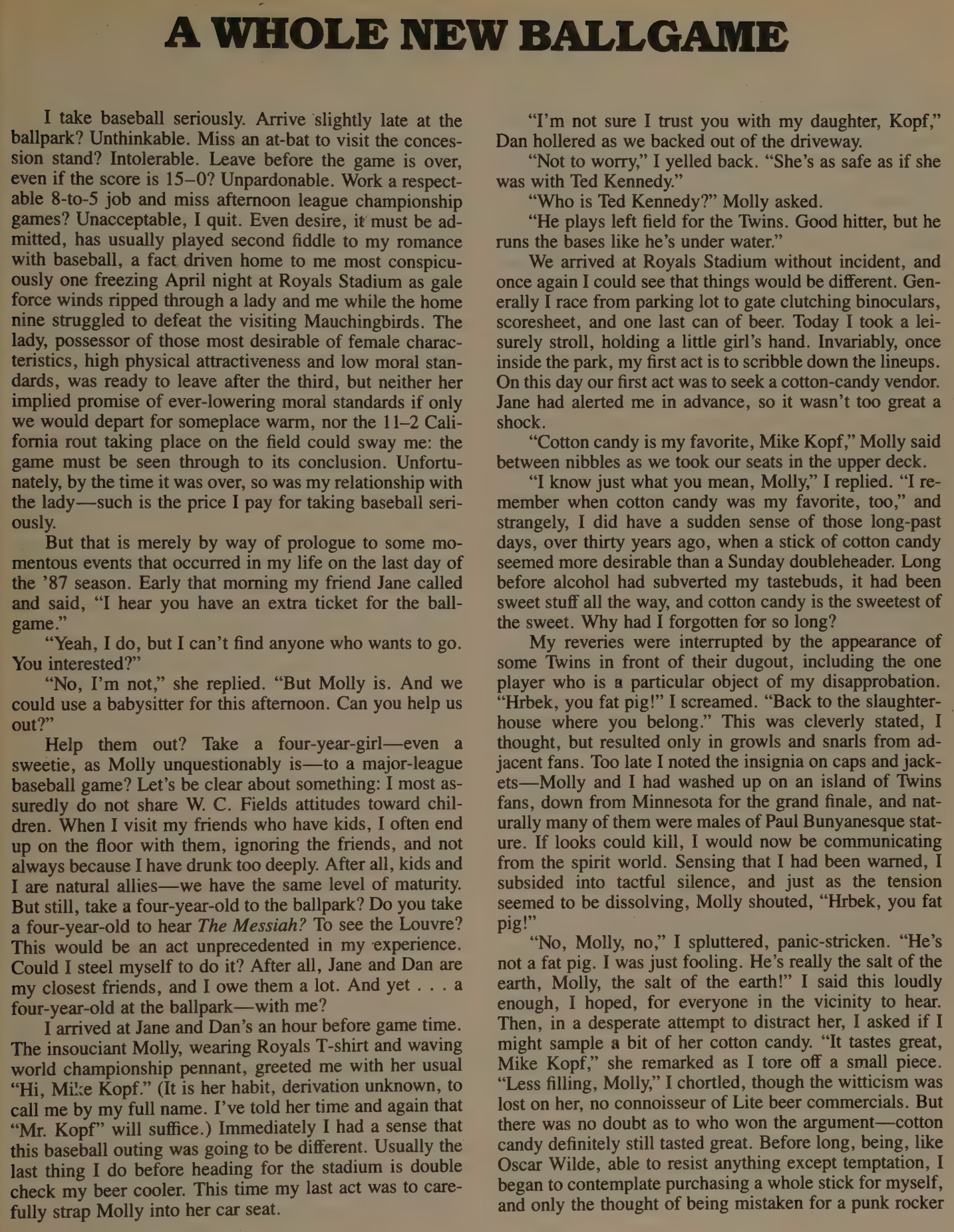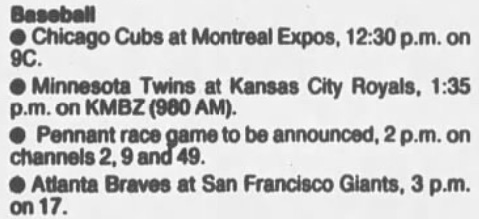Still Just A Game
We take baseball too seriously.
I’m certainly not immune to this. Most of my memories of watching ballgames in my youth were connected with carefully filling out scorecards. I always felt frustrated when the stadium announcer neglected to mention a pinch hitter, or when the hit or error official scorer’s judgment was announced several batters later, or when a bizarre play left me puzzled about what to write.
I was reminded of this when I read this note by Will Manzi the other day:
That’s right — this is a “note,” which is one of those Substack specific terms for something like a tweet. Notes on Substack are fun because there’s no stupid hashtag system to worry about, there’s no limit to how much you can write, and the community tends to be a lot more friendly and positive than on certain other platforms. There are fewer bots as well, though it seems that we’re seeing more of them by the day.
Anyway, Manzi is absolutely correct. Many of us — myself included — tend to focus so much on the statistical analysis part of baseball that we forget that the sport is supposed to be fun.
There’s a great article about this in The Bill James Baseball Abstract 1988 that most of you have probably forgotten about. This short article, which was more a work of literary creativity than sabermetric precision, was written by someone named Mike Kopf. My guess is that it’s probably fiction, though I’m not sure if it matters one way or another:
Of course, if you think about this after reading it, you’ll realize that things have really changed a lot since 1987.
I doubt any mother today would entrust her 4-year-old daughter with a grown man unrelated to her for an entire afternoon.
Kopf talks about his regular routine including grabbing one last can of beer before entering the ballpark; this is clearly back in the days before entering the stadium required a TSA-level inspection.
The cotton candy only cost $1 — something that feels so strange today that it must be fiction. Do they even still sell cotton candy at Major League ballparks?
Mike somehow managed to purchase cotton candy, peanuts, and soda without managing to put himself deep in debt — something that also seems foreign to today’s game.
It’s not clear to me if this is creative writing or a record of an actual event, and I’m not sure it matters. We do know that the Royals pulverized the Twins that afternoon, winning by a comfortable 10-1 margin over the eventual World Champions. Mike and Molly would have been 2 of the 26,341 customers at Royals Stadium that afternoon, which is actually a pretty good crowd for a team condemned to finish second place. It’s almost like the fans wanted to go to the game regardless of the impact (or lack thereof) on the final standings.
Now, if you dig into the game a bit more, you’ll realize just how much things have changed since the late 1980s.
For example, the big story behind this game was whether Kirby Puckett or Kevin Seitzer would wind up leading the American League in hits:
Do you remember when that was important? Do you remember when people cared about offensive statistics that didn’t start with a lowercase x, or that weren’t adjusted by an algorithm to account for park factors, league factors, and everything else? Did you ever think we’d stray so far from that level of simplicity?
Joe Niekro started for the Twins, but simply couldn’t get the ball over the plate, exiting in the second inning:
And the other crazy thing about this game is that it wasn’t televised:
This was a simpler time for baseball.
It didn’t feel like it at the time. 1987 was the age of the superstar. The baseball card industry was pumping wax out at all time high levels. Television was shining a bright spotlight on the game that we had never really experienced in the past.
But, despite all that, the game really was still a game back then. It seems so much simpler in hindsight.
Maybe our statistical tools and computer analysis hasn’t really made the game better. What do you think?










Baseball has played an integral place in my life. The cards, books, movies, music, tabletop representations, and most importantly the experiences in and at the game are things I constantly revisit and it still teaches me And when I say taught, I don't really mean being taught about the game, but rather life, myself, America, and God.
Baseball means so many different things to so many people. That's kind of what I love about it. It's meaning changes for me as well.